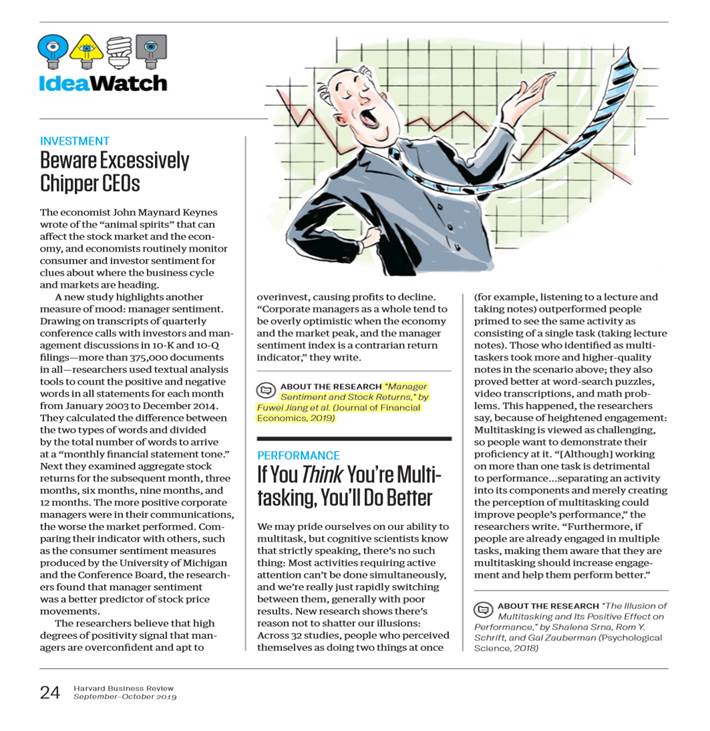Lately, Manager Sentiment and Stock Returns, a paper by our school’s Associate Professor Jiang Fuwei (the first author) and published in Journal of Financial Economics, one of the three first-class journals on finance, was reprinted by the September 2019 Issue of Harvard Business Review in a special report titled “Beware Excessively Chipper CEOs”.
This paper explores the financial reports and teleconference text documents of listed companies using the cutting-edge text data mining method, and extracts excessive optimistic or pessimistic sentiment information hidden in these documents using the financial text sentiment analysis technology. Then on this basis, it builds a manager sentiment index. It finds through research that higher manager sentiment precedes lower future stock returns, lower expected earnings and greater excess investment; moreover, the effect of manager sentiment is more evident on stocks with high uncertainty about cash flows, high subjectivity of valuation or high limits to arbitrage. The index reflects managers’ biased expectations for economic fundamentals and companies’ future earnings, as well as the resulting errors in investment decision making. Specifically, when manager sentiment is high (optimistic), the macro economy and corporate earnings are usually at historical highs. But managers tend to become overly optimistic and think future economic fundamentals and corporate earnings will become better or stay at high levels on a simple trend extrapolation basis, but they ignore a strong predictable return reversal due to the impact of economic and profit cycles. Therefore, high manager sentiment will lead to excessively optimistic cash flow expectations and short-term overvaluation of share prices, as well as future negative unexpected earnings and sharp falls in share prices. Affected by excessively optimistic manager sentiment, companies usually will ramp up financing and investment. Meanwhile, given the long cycle and time delay in fixed asset investment and decision making, high manager sentiment will result in the phenomenon of excessive investments with low investment returns in a considerable period of time, and destroy company value. From the policy perspective, when listed companies embark on large-scale expansion or investment due to high manager sentiment, investors and regulators shall be extremely cautious, because it is highly likely that such investment cannot obtain the expected earnings in future and will result in value destruction.



